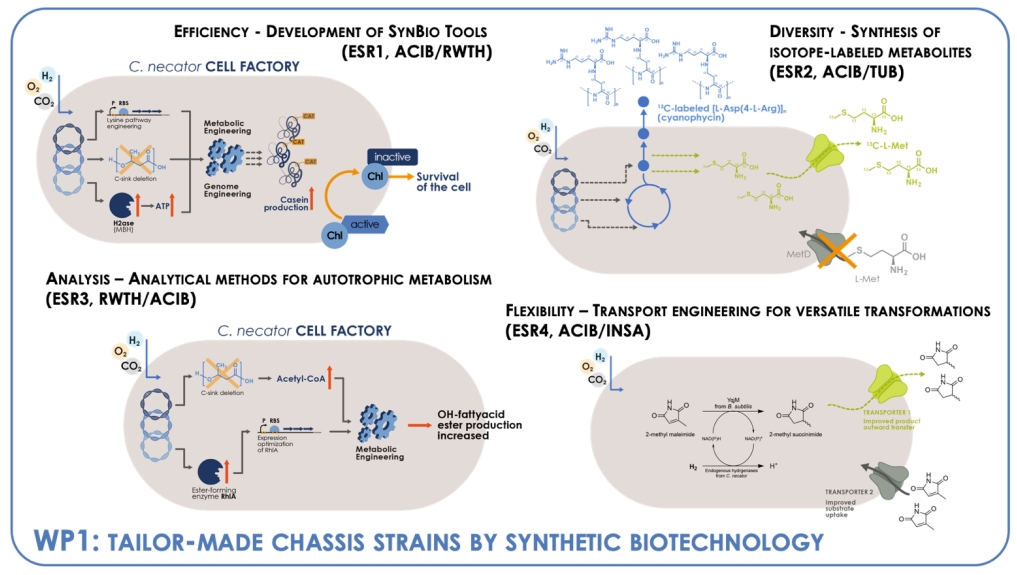
WP1
Chassis strain engineering for efficient gas feedstock conversion
The objective of WP1 is to provide an optimized strain for the conversion of the gas feedstock by metabolic engineering, flux analysis and the engineering of transport systems. The design of molecular genetic tools and the comprehensive characterization of selected strains will be essential.
ESR1: Synthetic biology to streamline the metabolism of C. necator toward the production of rare amino acids and proteins
1st Supervisor: Dr. Sandy Schmidt
2nd Supervisor: Prof. Lars M. Blank
University of Groningen
ESR2: Metabolic strategies for the synthesis of isotope-labeled amino acids in C. necator
1st Supervisor: Dr. Sandy Schmidt
2nd Supervisor: Dr. Lars Lauterbach
University of Groningen
ESR3: Metabolic Engineering of C. necator to exploid lipid de novo synthesis for OH-fattyacid ester production
1st Supervisor: Prof. Lars M. Blank
2nd Supervisor: Dr. Sandy Schmidt
RWTH Aachen
ESR4: Transport engineering in C. necator
1st Supervisor: Prof. Robert Kourist
2nd Supervisor: Dr. Stéphane Guillouet
acib GmbH
ESR5: H2-driven production of substituted piperidines in C. necator
ESR6: Engineering of C. necator for H2-driven production of functionalized piperazines
ESR7: Electrophotoautotrophic production of N-heterocycles by an enzymatic cascade in Rhodopseudomonas palustris
WP3
Process intensification of gas-driven processes
In WP3 the training network will develop a high-pressure lab-scale bioreactor for H2/CO2/O2-based reactions under consideration of the safety aspect. The engineered strains of WP1 and WP2 will be tested in this bioreactor and the physiological understanding of autotrophic fermentations will be improved.
ESR8: Impacts of high pressure for efficient biomolecules production from CO2: from reactor design to microbial physiology
ESR9: Impact of gas delivering membrane systems on the production of biomolecules from CO2: from reactor design to microbial physiology
ESR10: Dynamic analysis of subpopulation distributions of engineered C. necator for biomolecules production from CO2: determination of the strain robustness under the constraints of gas fermentation
ESR11: Gas fermentation to match microbial requirements and technological feasibilities








